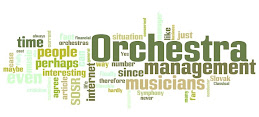Writing a blog is fun to do; it gives you an opportunity to analyse your own thoughts, it saves time as potential customers can scan your opinions (or let's say; free advertisement) and you don't have to go through time-consuming publishing processes. When placing a web-counter/stats application it gives you also a feedback of who is reading your blogs and ... for what reason.
For the past few months, I have analysed my page hits, and come up with an odd finding: whether readers are from India, Nigeria, Canada or the UK... I can see remarkably many search requests for "is culture static/dynamic?". Scaringly similar! And although financial crisis or not, whether a certain political coalition is favourable to culture or not, it seems that there is a universal quest for finding out whether culture is something that is static (stiff, unchanging, conservative) or dynamic (subject to changes, flexible...). And it makes you think even more about exactly these search queries.
When taken only at our modern setting's outlook, we consider perhaps modern mass-media culture as being dynamic. In my case, I am referring actually to culture as not being MTV-spots but to culture of music traditions. Music from the Renaissance, Baroque, Cassicism, Romantic period... Music of our forefathers - therefore long long ago,.. thus "static". Yes, music of our forefathers, but nevertheless so much alive and exciting to fathom. Why fathom? Because through time, to a certain level, we have lost touch with it. Now, in our modern era of almost unlimited access thanks to internet, we can re-discover the dynamism of early music even re0invent the clear sound of late-romanticism, which we have unfortunately polluted with overly-zealous vibratos losing cristal clear intonations and harmonic cleanliness, making the music more alive and appealing.
A few weeks ago, I have invited some friends - who would hardly ever go to a classical concert - to a concert of the ensemble Musica Aeterna. Playing French baroque music, this would perhaps be a different planet to them. Although they would never tune their radio to a classical station, or buy a CD with Pinnock, Gardiner and whoever else, they were much astonished about the vibrant vivacious nature of the performance, even intrigued to the very end.
Pursuing research regarding old manuscripts, performance practices, is usually an exciting quest -almost an adventure. You blow off the century old dust and find out about the lively emotions of musicians of centuries' ago. And discover that we do hardly deal with stiff two-dimensional painting like figures but true people living through all strata of human feelings, which resemble ours. When approaching early music with such a "jazzy" attitude, it can be demonstrated that even "early music" is hardly a kind of dinosaur skeleton in a dusty museum, but a exciting encounter with our forefathers who are exactly... like us. It shows us, how wrong we have perceived their lives. Culture is hardly from static; it is dynamic and fully alive.
A happy and musical 2009 to you all!
MS
For the past few months, I have analysed my page hits, and come up with an odd finding: whether readers are from India, Nigeria, Canada or the UK... I can see remarkably many search requests for "is culture static/dynamic?". Scaringly similar! And although financial crisis or not, whether a certain political coalition is favourable to culture or not, it seems that there is a universal quest for finding out whether culture is something that is static (stiff, unchanging, conservative) or dynamic (subject to changes, flexible...). And it makes you think even more about exactly these search queries.
When taken only at our modern setting's outlook, we consider perhaps modern mass-media culture as being dynamic. In my case, I am referring actually to culture as not being MTV-spots but to culture of music traditions. Music from the Renaissance, Baroque, Cassicism, Romantic period... Music of our forefathers - therefore long long ago,.. thus "static". Yes, music of our forefathers, but nevertheless so much alive and exciting to fathom. Why fathom? Because through time, to a certain level, we have lost touch with it. Now, in our modern era of almost unlimited access thanks to internet, we can re-discover the dynamism of early music even re0invent the clear sound of late-romanticism, which we have unfortunately polluted with overly-zealous vibratos losing cristal clear intonations and harmonic cleanliness, making the music more alive and appealing.
A few weeks ago, I have invited some friends - who would hardly ever go to a classical concert - to a concert of the ensemble Musica Aeterna. Playing French baroque music, this would perhaps be a different planet to them. Although they would never tune their radio to a classical station, or buy a CD with Pinnock, Gardiner and whoever else, they were much astonished about the vibrant vivacious nature of the performance, even intrigued to the very end.
Pursuing research regarding old manuscripts, performance practices, is usually an exciting quest -almost an adventure. You blow off the century old dust and find out about the lively emotions of musicians of centuries' ago. And discover that we do hardly deal with stiff two-dimensional painting like figures but true people living through all strata of human feelings, which resemble ours. When approaching early music with such a "jazzy" attitude, it can be demonstrated that even "early music" is hardly a kind of dinosaur skeleton in a dusty museum, but a exciting encounter with our forefathers who are exactly... like us. It shows us, how wrong we have perceived their lives. Culture is hardly from static; it is dynamic and fully alive.
A happy and musical 2009 to you all!
MS

No comments:
Post a Comment